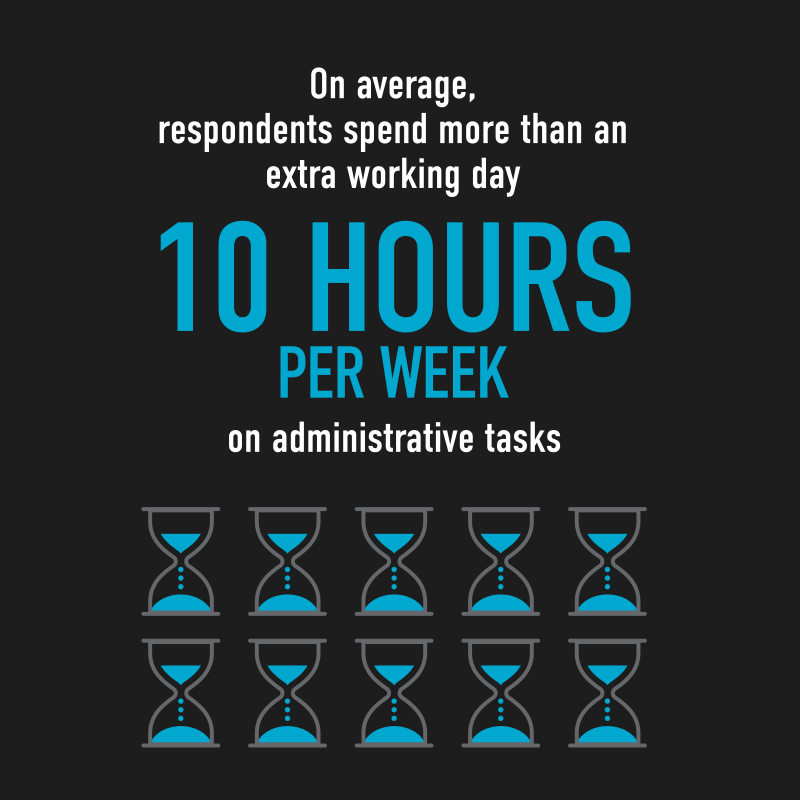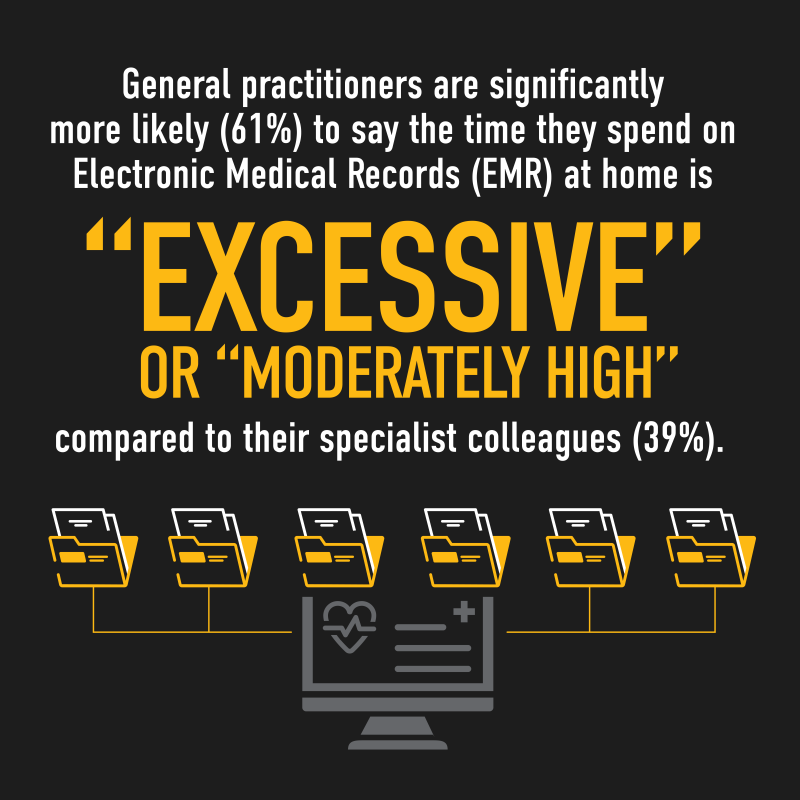The administrative burden in medicine is linked to rising rates of burnout among physicians — and primary care providers are bearing the brunt of it.
Mounting paperwork is a problem across the profession. According to the Canadian Medical Association's 2021 National Physician Health Survey (NPHS), general practitioners are significantly more likely (61%) to say the time they spend on Electronic Medical Records (EMR) at home is “excessive” or “moderately high” compared to their specialist colleagues (39%).

Dr. Chandi Chandrasena is the chief medical officer at Ontario MD, which supports physician adoption and use of EMRs and other digital health tools for the province. She says the issue is contributing to some family physicians closing their practices, and medical students are finding the once sought-after career less appealing.
It’s worrying in a system where there is already a dearth of family physicians. “You will not see cradle to grave family medicine, and that will affect all of us,” she says.
The cost of physician administrative work
Charting has always been part of clinical work. What’s changed, says Dr. Chandrasena, who practised as a family physician for 20 years, is the red tape on top of that: cumbersome referral processes, a plethora of forms from numerous sources — both federal and provincial — and a lack of EMR integration necessitating access to multiple online portals for patient information.
In a survey conducted by the Ontario College of Family Physicians, respondents said they worked 19 hours on administration every week.
This administrative burden is a contributing factor in diminishing mental health among physicians, who face high rates of burnout, the risk of compassion fatigue and profound career dissatisfaction. In the 2021 NPHS, eight in 10 physicians and medical learners scored low on professional fulfillment — with general practitioners the least likely to express career satisfaction compared to their peers.

“Most physicians go into medicine because we want to sit at that intersection between science and human-to-human connection,” says CMA President-Elect Dr. Kathleen Ross, a BC family physician. “Administrative burden stands in the way of that positive relationship we have with our patients.”
Learn more about the CMA’s focus on administrative burden
Changing the systems to prioritize health care
“It’s time to have a hard look at what paperwork is actually required,” she says. “I think there’s an opportunity to streamline what needs to be included — and by who.”
She points to patients who need coverage for drugs or devices not typically included in provincial health plans. In BC, only prescribers — not pharmacists, for example — can submit requests.
The introduction of new technologies should also be carefully considered.
“Family medicine is the quarterback of all care in our system, but it’s undervalued,” says Dr. Ross, explaining that innovations have rarely, if ever, had family medicine workflow as the focus.
Ensuring that physicians are involved in the development and approval of new administrative processes is essential.
Family physician Dr. Nicole Stockley is director of external engagement at the Newfoundland and Labrador College of Family Physicians, where one of her main objectives is educating policy-makers about physician administrative burden and suggesting ways to lessen its impact.
“Physician engagement is so important,” she says. “The more we can empower physicians to bring up issues and make changes to trickle up to those systems, the more we can solve this issue.”
Until that happens, she knows that recruiting physicians like her, particularly in rural and remote communities, will remain a challenge.
“We all went into medicine to see patients. Things that take us away from that interaction and skillset detracts from our joy in our day-to-day work.”
Watch a session on solutions to the administrative burden in medicine from the CMA's 2023 Health Summit.
